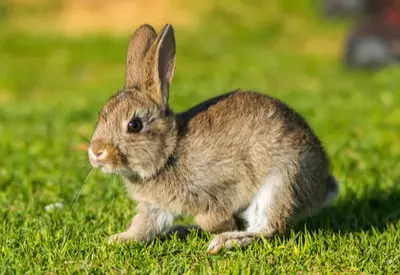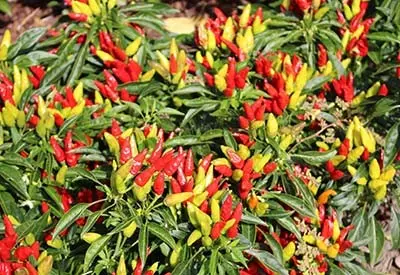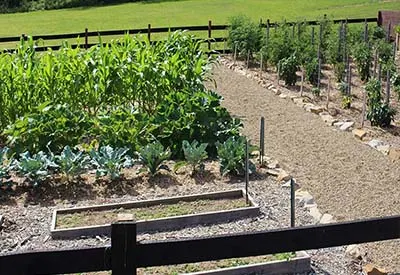When it comes to keeping rabbits out of our garden and flowerbeds, we never had much of a problem. That is, until recently.

We planted our very first garden at the farm in 2011, and there was not a single rabbit to be found. And with 100% certainty, I can say we never encountered one until one fateful September day in 2015.
We were walking along the fence line of our garden, and suddenly, a ball of fur burst from underneath the large leaves of a hosta plant.
And so began the steady invasion of the rabbits!
Everything in nature has a purpose and balancing effect. When we first gardened at the farm in 2011, there was a large population of coyote in the area.
The farm was also quite open at that point, so there were few places for rabbits to hide. In addition to the coyote, we also had a much younger and active Jazzy (our beloved black lab) to patrol the area.
As we now head into garden season, all of that has changed. The coyotes are all but non-existent thanks to more development, and an effort by local farmers to help control the population.
Our farm is also now filled with hundreds of grasses and plants that create the perfect refuge for furry little critters.
And last, but not least, Jazzy is now nearing 12 years of age. At this point, she would much rather chase a few dreams in her sleep than a lightning-quick rabbit.
And so it is that the rabbit population has multiplied. They have damaged a few crops here and there. However, with a few modifications and tricks, we have managed to keep their damage to a minimum.
Keeping Rabbits Out Of The Garden & Flowerbeds – Tips and Tricks
The Hot Pepper Effect

We love our hot peppers, and in addition to their great flavor, they have helped tremendously in keeping rabbits from destroying both our vegetables and flowerbeds.
We have always planted hot peppers on the outer rows of our garden. It is a great way to signal to invaders that this might not be the plot for them.
We will usually find a bit of damage on a few of the leaves and a young pepper or two early on. And then it stops. They simply do not like the heat!
In our flowerbeds, we always mix in a fair amount of hot ornamental pepper plants as well.
They are simply stunning to use as flowers for their massive color – and they are highly rabbit-proof! It is a win-win. See : Ornamental Pepper Plants
We have make a pretty potent hot pepper spray from the seeds and pulp. They help keep rabbits and other animals from eating tender young plants.
It really does work, although you do need to reapply quite often to keep it effective. Especially after any rainfall. See : How To Make And Use Hot Pepper Spray
The Rabbit Fence
Without a doubt, fencing is the number one way to keep rabbits at bay. And it doesn’t take much. A 2′ to 3′ high wire mesh or chicken wire fence will do the trick.
For years, we have had a decorative board and batten fence running around the perimeter of our garden. This year, we are attaching a 30″ high wire fence to the inside to eliminate any issues at all.
If you don’t have an existing fence, you can install wire fencing with temporary metal posts. It is a quick, easy, and somewhat inexpensive solution to keeping your food safe! Product links : 28″ x 50′ high rabbit fencing – Small Metal Fencing Posts
Two Failed “Old-Time-Myths” For Keeping Rabbits Out

We would be remiss if we didn’t cover a few old-time tricks many have heard about. The first – placing dog or human hair in bed spaces to deter the rabbits. In our case, they actually used Jazzy’s shedding fur to make a rabbit nest!
Another famous myth is placing moth balls in the garden and flowerbeds.
Unfortunately, not only are they highly ineffective on a wide scale – mothballs also contain chemicals and known insecticides that simply are not safe to place around food sources.
Here is to keeping rabbits out of your garden and flowerbeds! Happy Gardening, Jim and Mary
To receive our 3 Home, Garden, Recipe and Simple Life articles each week, sign up for our free email list. You can also follow us on Facebook, Twitter, Pinterest, or Instagram. This article may contain affiliate links.

